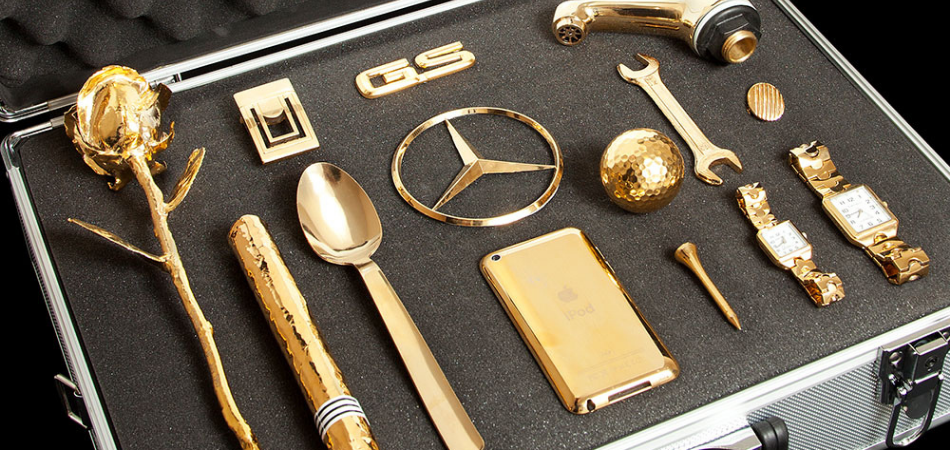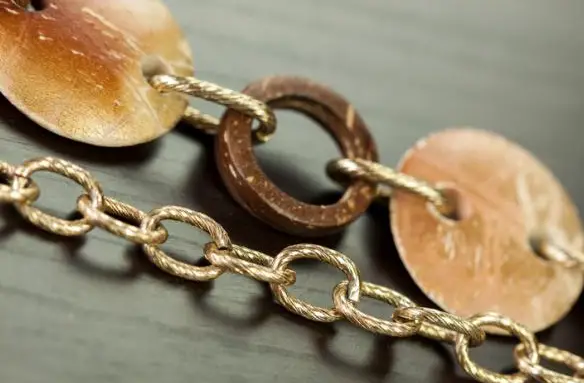Does gold plated rust? It is a contentious issue as it is a common belief that rust does not affect gold. Many people are searching for the right answer to this question, and in this article, we will discuss rust and how far the theory is true.
Yes, Gold plated will rust with time due to its very light gold layer and because it is only coated with gold and not entirely gold itself. People decide to plate their materials or metal properties with gold for different reasons. While some do this to avoid rust, others gold-plate their metals to appear like gold in the public eye.
However, the most common reason people go for gold plating is that it is cheap. Gold plated can give the appearance of vermeil, gold-filled, solid gold, and even pure gold while going for a very affordable market price.
Jewelry, metal poles, silver, other metal alloys and valuables can all undergo gold plating. While gold plated will eventually tarnish, corrode, and rust, the speed at which this will happen depends on different factors, but most importantly, on the care given to them.
Contents
What Is Gold Plated and Why Will It Rust?
Gold plated can be used in two ways. First, gold plated means any base metal that has the outer layer of gold. But more specifically, gold plated is a kind of gold plated jewelry with a gold layer thickness of about 0.05 omicron or less.

Gold plated has the lightest layer of gold among the types of gold plated jewelry. For this reason, it is also called flash gold. You can find gold plated in jewelry such as earrings, finger rings, anklets, necklaces, waistbands and many others.
The base metal is usually copper and brass. However, other metals can equally be gold plated to give the look of gold. Gold plated generally rust because with time, the molecules of the base metal replaces the golden outer layer, and when exposed to moisture, begins to suffer rust.
The thin layer of gold which is flashed on the base metal does not really last, especially when not taken proper care of. An ordinary crack can get your gold plated right on its way to rust if not redeemed by replating.
Factors that Will Make Your Gold Plated Rust
- Cracks: Remember that your metal or jewelry only suffer rust when exposed to moisture, oxygen and iron. There won’t be this exposition unless the outer coating is worn off by cracks. Thus, cracks are your enemy when it comes to gold plated.
- The Nature of the Base Metal: Copper, brass, aluminum and nickel are usually the base metal of your gold plated. The layer of gold plated on these base metals for gold plated is 0.001 millimeter, called omicron. The base metals are very much susceptible to rust once exposed to the slightest condition of improper care.
- Moisture: Moisture, vapor and sweat are great enemies to your gold plated. Moisture accelerates the process of rust, most especially salty water or moisture.
- Your Body PH Range: The range or level of your body. This is because the layer of gold that separates your body from the base metal is quite light and thin. Thus, the heat of your body almost directly affects the gold plated and might lead to tarnish or corrosion of the gold layer, and finally rust on the gold plated.

How To Prevent Gold Plated From Rust?
Although your gold plated will finally wear off and, if not replated, rust, there are many ways to limit its wearing off and rust.
- Wash your gold plated in a warm non-acidic and non-bacterial soap detergent. Then rinse and keep in a dry place to dry off.
- Remove your gold plated jewelry when at home to avoid contact and scratch that will expose the base metal to rust.
- Keep your gold plated in a plastic container in order not to scratch. Ensure the plastic container is airtight to avoid reactions with moisture and oxygen.
- Do not store your gold plated in a humid or moisturized area. This will prevent rust, tarnish, corrosion or reactions
- It is not advisable to keep two gold plated in one container as continued contact will lead to scratch and consequently rust.
- Of course, when you go swimming, you ought not to wear your gold plated jewelry to avoid chemical reactions that will lead to rust.
- When engaged in hard activities which can result in scratches or excessive sweating, remember to remove your gold plated jewelry and keep it in a dry place.
- Remember to keep your gold plated away from hard perfumes, oil or even chlorine. These chemicals are capable of reacting with your gold plated jewelry and leading to tarnish and rust.
- Substances like oil, nail polish, nail polish remover, perfume, or chlorine can react with your gold plated jewelry and lead to tarnish and rust.
- Always remember to clean your gold plated jewelry of dust after each use. This helps maintain shine.
- Your gold plated is not everyday wear. Wear it occasionally and only when the occasion calls. This way, you will be able to avoid excessive wearing and tearing of the thin layer of gold.
Conclusion
One of the major advantages of gold plating is that it is very cheap when compared with gold vermeil, gold filled, solid gold and pure gold. In spite of its cheapness, gold plated still gives off the same shine and beauty as all other types of gold. On the other hand, gold plated can be very difficult to maintain and care for due to its light layer of gold on base metals that are very vulnerable to tarnish, corrosion and rust.
It is good you understand that while your gold plated will eventually tarnish, corrode and rust, it can stay for as long as five to ten years if properly taken care of as has been provided in the article.

